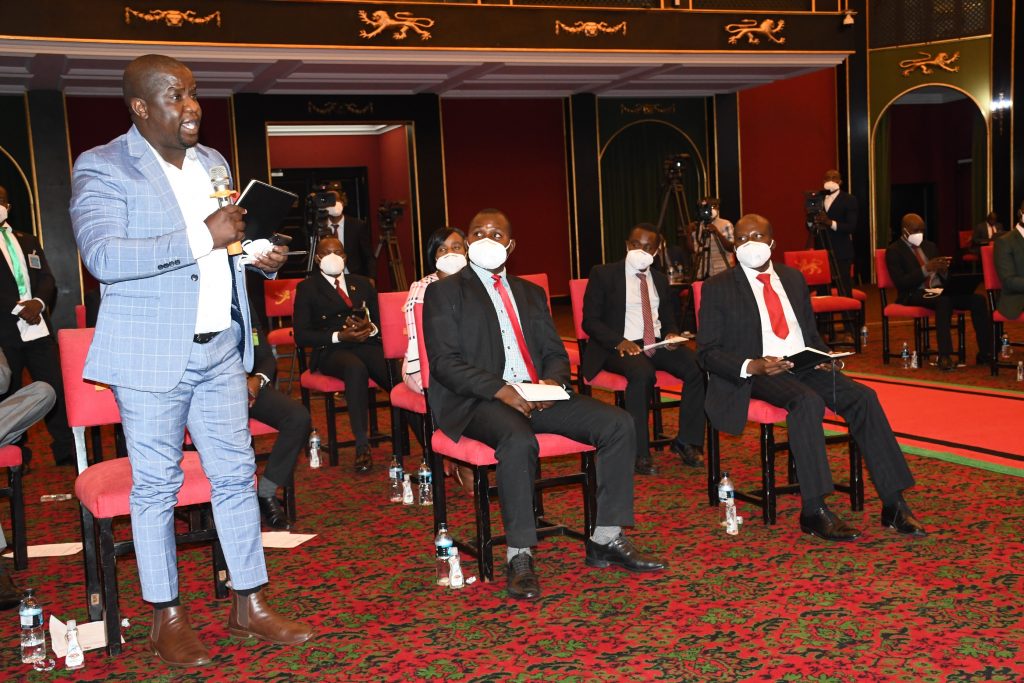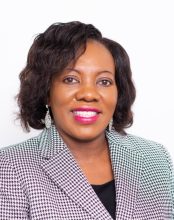Chakwera in straight talk
President Lazarus Chakwera on Tuesday described his recent three-country working visit as part of broader efforts to cleanse Malawi of the bad economy he inherited and earlier warned would need painful dosages and individual sacrifices to heal.
During a press conference he addressed at the Kamuzu Palace in Lilongwe on Tuesday to report on his visits to Kenya, Dubai in the United Arab Emirates and Scotland, the President, who returned home on Saturday, said the damage left by the previous administration locally and internationally was too great to repair in a short period.

Upon taking office last year, Chakwera said he found a broken tax system that failed the economy, a ruined public infrastructure network that now needs funding to shape up and a crippling national debt that must be repaid even as his administration tries to deliver promised livelihood-improving initiatives such as the Affordable Inputs Programme.
While ploughing ahead with domestic policies with high impact on citizens, government also needs to repair fractured international relations that can unlock global resources crucial to easing the burden on citizen, the President signalled.
He said: “The cost of doing these things is heavy and there is no household in Malawi that is not bearing some of that weight. This is the painful truth. I must tell you the way things are and not feed you lies.”
Chakwera’s address comes on the back of raging debate on the rising cost of living, starting with fuel price hikes last month which have recently been followed by double digit jumps in water tariffs.

The 16.5 percent value-added tax (VAT) on bank charges that Parliament already approved kicked in almost at the same time as the Roads Fund Administration rolled out the novel tollgate fees. These added woes to a people already reeling from a sustained jump in prices of consumer goods, including cooking oil and fertiliser.
While rising prices of goods is currently a global phenomenon as economies emerge from the Covid-19 health crisis, part of the problem is that Malawi does not have an economic programme with the International Monetary Fund (IMF).
An IMF programme is a crucial framework that acts as a guarantor to development partners and investors considering putting their money into Malawi. However, it went off track.
Without the IMF-sponsored programme, both bilateral and multilateral donors have been reluctant to support Malawi with direct budgetary support, which has traditionally shored up the country’s balance of payment position, thereby hand-holding the local currency, the kwacha.
The absence of budgetary support means that while Malawi has to court back donors, whose support the IMF says will be critical to easing Malawians’ economic pains, it also has to expand and deepen its trade ties with the outside world.
Chakwera said: “That is what the trade deals we secured in Kenya are about. That is what the trade deal we have sealed with South Sudan is about. That is what my discussions with various investors in Dubai were about.
“That is what my appeal for climate financing in Scotland was about. And even the trade expo that I will soon be attending in South Africa at the invitation of President Cyril Ramaphosa will be for that purpose.”
There are signs that things could gradually get better.
A recent IMF team, led by Mika Saito, that held virtual missions during the periods July 20 to 27 2021 and October 28 to November 4 2021 to conduct discussions for the 2021 Article IV Consultation with Malawi said in its statement that “Malawi’s economy is showing signs of recovery as daily Covid-19 positive cases remain relatively low”.
But current projections show that it will be a long slog as Malawi’s real gross domestic product growth is projected to pick up to 2.2 percent in 2021 from 0.9 percent in 2020 thanks to a good harvest.
With the population growth rate standing at 2.7 percent, such level of economic output is too low to make a dent on individual incomes.
It is less than the six percent that development economists say is needed to have an impact on poverty levels in a country where more than 50 percent of its population survive on less than $2 per day.
Inflation rate, the general rise in prices of goods and services, is expected to reach nine percent in 2021, from 8.6 percent in 2020, driven by increases in prices of fuel, fertiliser and food.
The IMF has since urged aggression in addressing the humanitarian situation, strengthening public sector governance, restoring debt sustainability and rebuilding fiscal and external buffers, which Chakwera on Tuesday said his administration is on top of.
The IMF said given already pressing debt service needs, delaying fiscal adjustments will worsen pressures down the road.
It said: “Redoubling efforts on domestic revenue mobilisation, reprioritising expenditure through curtailing growth in wages while safeguarding capital spending, reforming the Affordable Inputs Programme and goods and services, and reducing non-critical spending would help in this regard. Realism in budget forecasts and public financial management reforms would help containing fiscal deficits and debt.”
Reacting to the President’s sentiments on Tuesday, Consumers Association of Malawi (Cama) asked Chakwera and his administration to own the economic mess Malawi has found itself in, saying the challenges are partly because of unfulfilled campaign promises.
Cama executive director John Kapito said it is an insult to transfer the problems faced today to the previous administration which has been out of power for about 18 months.
He said: “They must own the mess they have created for lack of a proper plan on how to rescue or improve the economy. Why does the President appeal for our patience when his government does not really seem to have any plan aimed at rescuing Malawians from economic hardship?”
On his part, Centre for Social Accountability and Transparency executive director Willy Kambwandira said it is a mockery to the economically-strained population to be told to sacrifice when the leadership still lives large and extravagantly.
He chided the Tonse Alliance administration for what he described as “wanton expenditure”, including presidential trips both locally and internationally. He said this does not send a good message of a government that is going through tough economic life.
And speaking on Tuesday during a 2021 National Development Conference in Lilongwe, Reserve Bank of Malawi Deputy Governor Grant Kabango promised that the central bank will continue to strive to ensure stable prices while also ensuring high economic growth rate.
He was responding to concerns raised by some participants at the conference who bemoaned the high cost of living and also questioned the central bank’s effectiveness and role in containing rising prices of goods and services.
Chakwera ascended to the presidency following his triumph in the court-sanctioned Fresh Presidential Election held on June 23 2020.





